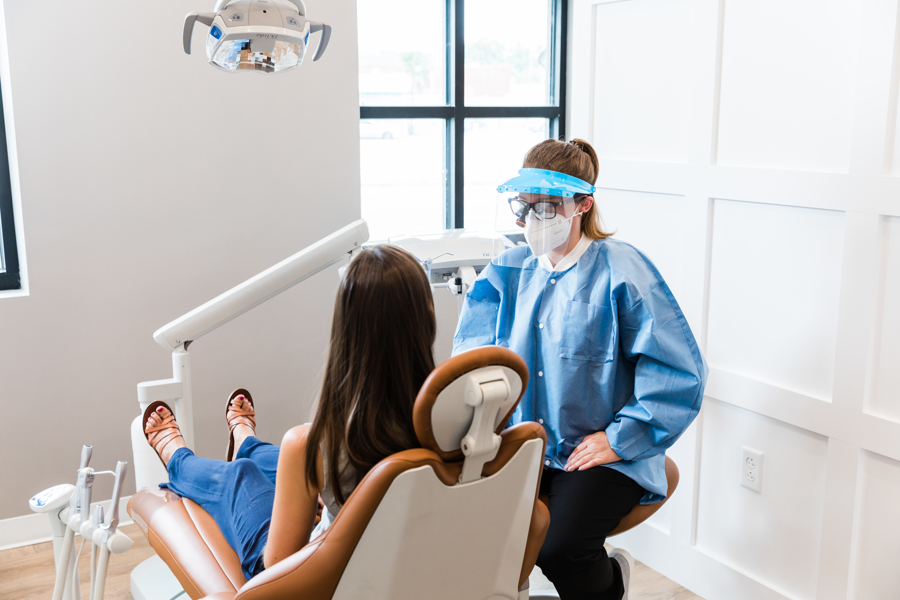What to Anticipate from Your First Visit to a Dentist in Eugene Oregon
What to Anticipate from Your First Visit to a Dentist in Eugene Oregon
Blog Article
Discover Constant Oral Problems Your Dental Expert Can Solve
Comprehending constant dental problems is vital for preserving optimal dental wellness. Problems such as dental caries, gum tissue illness, tooth level of sensitivity, poor breath, and tooth degeneration are typical yet frequently forgotten until they come to be severe. Normal dental check outs and personalized treatment strategies can attend to these problems properly, making sure a healthier and brighter smile.
Cavities
Dental caries, likewise understood as cavities, are a common oral health and wellness issue created by the demineralization of tooth enamel as a result of acid production from bacterial plaque. This procedure begins when germs in the mouth metabolize sugars and starches from food, creating acids that wear down the enamel. If not attended to immediately, this erosion can pass through deeper into the tooth, affecting the dentin and ultimately the pulp, potentially bring about extreme discomfort and infection.
The very early stages of cavity development typically existing as white spots on the tooth surface area, indicating first demineralization. As the process advances, these places can become brown or black sores, symbolizing much more extensive decay. Normal dental examinations are critical for early discovery, as dental caries in their nascent phases can be treated with remineralization strategies, such as fluoride treatments.
Dental experts typically eliminate the corroded part of the tooth and fill up the tooth cavity with materials such as composite resin, amalgam, or ceramic. Preventative actions, including great oral health methods and dietary adjustments, play a critical duty in mitigating the danger of tooth cavities.
Gum Tissue Condition
While dental caries stand for a substantial problem for dental health and wellness, one more important problem that demands attention is gum disease. Additionally referred to as gum illness, gum disease is an inflammatory problem influencing the cells bordering and supporting the teeth. It is largely brought on by the build-up of plaque-- a sticky film of microorganisms that bases on teeth.
Periodontal disease proceeds with stages, beginning with gingivitis, identified by inflammation, swelling, and bleeding gum tissues (eugene dentist). If left without treatment, gingivitis can intensify to periodontitis, where the internal layer of the periodontal and bone pull away from the teeth, creating pockets that end up being infected. With time, the contaminants created by the bacteria damage down the bone and connective tissue that hold teeth in position, possibly causing missing teeth
Very early detection and therapy are essential. Expert dental cleansings and enhanced oral hygiene techniques, such as cleaning twice everyday and flossing, can take care of gingivitis. For more innovative phases, treatments might include scaling and root planing, anti-biotics, and even medical interventions.
Routine oral check-ups play an essential role in stopping and taking care of gum tissue disease. Dentists can determine very early indicators and recommend proper treatments, guaranteeing the upkeep of healthy and balanced gums and total oral health and wellness.
Tooth Level Of Sensitivity
Tooth sensitivity influences millions of people worldwide, presenting a common yet commonly upsetting dental concern. This problem arises when the enamel, the outer protective layer of the teeth, is compromised, exposing the underlying dentin. The dentin contains microscopic tubules that lead directly to the dental pulp, where nerves stay. When exposed to stimulations such as hot, chilly, pleasant, or acidic materials, these nerves are set off, triggering sharp pain or pain.
Numerous factors add to enamel erosion and subsequent tooth sensitivity, consisting of aggressive brushing, acidic foods and beverages, gum economic downturn, and bruxism (teeth grinding) Furthermore, dental treatments such as teeth whitening can briefly enhance sensitivity.
Foul Breath
One more common dental problem that impacts people' day-to-days live is negative breath, medically described bad breath. This problem can be particularly distressing, influencing personal interactions and self-confidence. Bad breath commonly originates from poor oral hygiene, which permits food fragments to remain in the mouth, promoting bacterial growth. These microorganisms produce sulfur compounds, causing undesirable smells.

Referrals may include boosting oral health techniques, such as routine brushing and flossing, making use of antibacterial mouth washes, staying hydrated, and attending to any type of oral issues. Reliable monitoring of bad breath not just improves oral health and wellness but additionally significantly enhances top quality of life.
Tooth Degeneration

Protecting against dental cavity involves a mix of great oral health techniques and routine oral check-ups. Brushing teeth at the very least twice daily with fluoride tooth paste, flossing to get rid of plaque in between teeth, and limiting the consumption of sugary foods and beverages are important safety nets. Fluoride treatments, dental sealants, and specialist cleanings given by a dentist can additionally play a substantial duty in fortifying enamel and preventing decay.
When tooth degeneration takes place, very early intervention is vital. Dentists can get rid of decayed cells and bring back the tooth with dental fillings made from products such as composite resin, amalgam, or porcelain. In more innovative instances, treatments like crowns, origin canals, or extractions might be required. By attending to dental caries without delay, dental professionals help maintain oral framework and function, guaranteeing long-lasting oral health and wellness.
Verdict
Addressing usual oral issues such as tooth cavities, gum tissue disease, tooth sensitivity, bad breath, and tooth decay is important for maintaining optimal dental health and total well-being. Dental practitioners have the proficiency to detect and treat these concerns successfully, guaranteeing customized take care of each patient. Normal precautionary actions and oral check-ups are necessary in recognizing and managing these worries early, promoting a much healthier and a lot more confident smile over a life time.

Tooth degeneration, additionally understood as oral cavities, takes place when the enamel, the outer layer of the tooth, is eroded by acids produced by microorganisms in the mouth. Brushing teeth at the very least twice daily with fluoride toothpaste, flossing to get rid of plaque in between teeth, and restricting the consumption of sugary foods and beverages are necessary preventive actions.Attending to typical dental concerns such as dental caries, gum condition, tooth level of sensitivity, bad breath, and tooth degeneration is important for keeping optimum dental wellness and total health.
Report this page